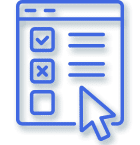What does a alcohol and drug Addiction Counselor in Connecticut do? What is Their Job Role?
Drug and alcohol abuse have ravaged the lives of countless individuals and families. Substance abuse counselors can have a tremendous impact on those suffering from alcohol and drug abuse, aiding not only the people they help directly but society as a whole.
Compare Popular Online Substance Abuse Counseling Programs
Overview
The substance abuse counselor licensure requirements for Connecticut are similar to other states, and virtually identical for those seeking the highest level of licensure. For the latter, Connecticut accepts reciprocity for those licensed in other states. Reciprocal alcohol and drug counselor licensing is awarded by the Connecticut Certification Board.
Connecticut Licensing & Certifications for Associates & Independent Counselors

In Connecticut, substance abuse counselors are titled at two levels. A Certified Alcohol and Drug Counselor (CADC) is the primary level, while the more advanced level is that of Licensed Alcohol and Drug Counselor (LADC). Those at the LADC level must meet all CADC level requirements. All applications are handled by the Connecticut Department of Public Health. Send all applications and verification forms to:
Connecticut Department of Public Health
Alcohol and Drug Counselor Certification
410 Capitol Ave., MS # 12 APP
P.O. Box 340308
Hartford, CT 06134
Education Required for Practice

In Connecticut, CADC candidates do not need a college degree to qualify for licensure, but more highly educated individuals have better employment prospects. CADC candidates must have a minimum of 360 hours of “relevant” education, of which at least 240 hours are specifically alcohol and drug abuse-related. The 120 other necessary hours must consist of other human behavioral courses. Those courses relating to alcohol and drug abuse must include:
- Assessment planning and treatment
- Ethics
- HIV/AIDS
- Pharmacology
- Ethnically diverse groups and special populations
Potential drug abuse and substance abuse counselors need a minimum of 90 hours in counseling theory and techniques, but not more than 40 such hours of in-service work qualify for credit toward the educational requirements.
At least 300 hours of practical training is required. For these hours, work experience and/or internship does qualify. A supervisor must verify a minimum of 10 hours of work in each of the following fields:
- Orientation
- Case management
- Referral
- Keeping records and reporting
- Treatment planning
- Screening
- Assessment
- Intake
- Counseling
- Client education
- Examination
- Consulting
- Crisis management
LADC candidates must possess at least a master’s degree in counseling, psychology, marriage and family therapy or related fields. A minimum of 18 semester hours is required in counseling or similar subjects. LADC candidates must document at least 240 hours of alcohol and drug abuse related education for the same 360 hour total of relevant education as CADC candidates. Many LADC candidates will have already fulfilled this requirement if they have CADC certification, as it also true of the necessary 300 minimum hours of practical training.
Some LADC candidates will have fulfilled this requirement at the certification level, and most will have fulfilled the 300-hour practical training requirements as well.
Background Checks
All candidates must undergo and pass a criminal background check for licensure eligibility.
CACREP Accredited Online Certification

Two types of alcohol and drug counselor accreditations are recognized in the United States; institutional alcohol and drug counselor and specialized alcohol and drug counselor. Institutional accreditation takes the entire institution into account while the specialized focus on professional preparation programs. The Council for Accreditation of Counseling and Related Educational Programs (CACREP) is a specialized accreditation that focuses on master’s and doctoral degree programs in counseling at colleges and universities worldwide. Only already-accredited institutions are eligible for CACREP review. The review for accreditation will center on programs offering graduate degrees in counseling.
Find Your Online Addiction Counseling Program
Choosing a CACREP-accredited program ensures that the program meets the highest of quality standards. Many counseling specialties are accredited bythe CACREP, including addiction counseling. Accredited drug abuse addiction counseling programs prepare individuals to work with those affected by addictive behavior and their families. Addictive behaviors include alcohol, drugs, food, gambling, sex, and anything else that negatively affects your personal or work life by creating addiction behaviors.
CACREP-accredited programs will focus on treatment models and the phases of addiction including prevention, recovery, and relapse prevention. These 60-semester hour programs will include the application of interventions. When students choose a CACREP-accredited program they can be confident that:
- the program meets or exceeds national standards
- the program will focus on professional counseling rather than psychology oreducation
- the program has an excellent reputation
- CACREP graduates statistically receive higher scores on the National Counselor Examination for Licensure and Certification (NCE).
- the requirements for licensure will be met.
Department of Public Health, Professional Counselor Licensure
The Connecticut Department of Public Health is responsible for overseeing Professional Counselor Licensure and regulating counseling practices in the state. Applicants must provide required proof of education to be eligible for the licensure certification examination for alcohol and drug abuse. The Department of Public Health also enforces a period of practice under supervision for all new licensees.
Address
410 Capitol Avenue, MS #12APP
P.O. Box 340308
Hartford, CT 06134-0308
Phone
(860) 509-7603
Website Address
Licensure:
- Licensed Professional Alcohol and Drug Counselor in Connecticut
Counselor Testing & Examination Process

Candidates must take the International Certification & Reciprocity Consortium Examination for Alcohol and Drug Counselors. The ICRC exam’s questions are in a multiple choice format, with the candidate choosing between four possible responses. Of these four choices, just one answer is considered the best. Candidates only receive credit for choosing that best response.
Candidates go through testing via the Connecticut Certification Board, with all examinations done via computer. There is only one testing center authorized by the Connecticut Certification Board, located at 98 South Turnpike Road, Suite D, Wallingford, and the test is conducted four times a year. The state Department of Public Health notifies the Connecticut Certification Board about the candidate’s eligibility status.
Upon successful completion of the exam, candidates must send in the ICRC verification form to the Department of Public Health. Once the test is passed and all clinical supervision requirements are complete and verified, the candidate may apply for licensure from the Department.
Clinical Supervision Explained
All substance abuse counselor candidates require three years of supervised experience, with internships and work counting toward the qualification. A candidate with a master’s degree is generally credited with one year of experience, and overall, 2,000 hours of experience is usually considered the equivalent of one year.
Under Connecticut law, a supervisor qualifies if licensed as a drug and alcohol counselor in the state or is certified for clinical supervision by the Connecticut Certification Board. Those holding equivalent out-of-state credentials are also qualified. While certain professionals in other behavioral and/or health fields – including medical doctors, surgeons, psychologists, clinical social workers, registered nurses, professional substance abuse counselors and marital and family therapists - may perform in a supervisory capacity, if this person is not a drug and alcohol counselor per se they must complete 50 hours of specialized training in this field prior to supervisory consideration. The specialized education includes the areas of assessment and treatment planning, pharmacology and treatment techniques. Clinical supervisors must have hands-on experience working with patients diagnosed or assessed with drug and alcohol dependency.
Once the clinical supervision requirements are completed, the candidate may apply for a supervisory verification form from the Department of Public Health, along with a fee of $190. These forms are downloadable from the Department of Public Health website. The candidate fills out the top portion of the form, then gives the form to the clinical supervisor. That individual then sends the form, after notarization, directly to the licensing agency. The form verifies that the applicant has completed successfully all substance abuse-related training, practical training and internships or work experience.
Renewal and Continuing Education

All licenses are renewed annually. Each licensee must receive 20 hours of annual continuing education after their initial year of licensing, but it is possible to receive a waiver under certain circumstances, generally pertaining to illness or disability. The waiver may extend the time necessary to complete continuing education.
Continuing education must relate to a person’s field of practice. One hour per year on the topic of cultural competency is mandatory. Continuing education opportunities sponsored by licensed health care facilities and institutions qualify, as do courses available from accredited institutions of higher learning. The Connecticut Certification Board maintains a list of qualified continuing education providers. Online courses are permitted as long as such classes are offered by qualified providers.
Each licensee is responsible for obtaining alcohol and drug counselor certificates of completion from the provider for all relevant hours, and must keep these certificates for at least three years past the renewal date for the year in question. The licensee does not have to return such certificates to the Department of Health unless requested to do so, but the Department may audit such continuing education completion records at any time during the time period. If a licensee does not comply with their continuing education requirements, disciplinary action may ensue.
Potential Counselor Career Path Options
- Addiction Counselor
- Alcohol and Drug Addiction Counselor
- Behavioral Health Specialist
- Certified Addiction Drug and Alcohol Counselor
- Chemical Dependency Counselor
- Mental Health Counselor
- School Counselor
- Substance Abuse Counselor
Associations & Organizations
The nonprofit Connecticut Association for Addiction Professionals (CAAP) serves as the Connecticut chapter of the National Association of Alcohol and Drug Abuse Counselors, or NAADAC. To join CAAP, a alcohol and drug counselor must already be a NAADAC member. CAAP’s mission is providing “advocacy and education for addiction focused professionals.” In accordance with both the NAADAC and the Connecticut Certification Board, CAAP provides the highest quality of education in accordance for members.
